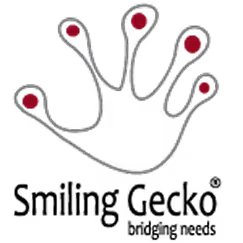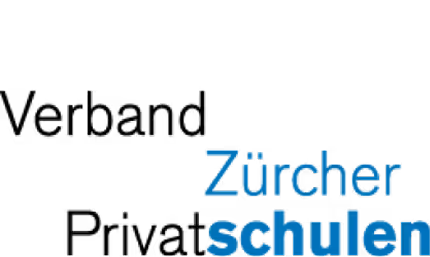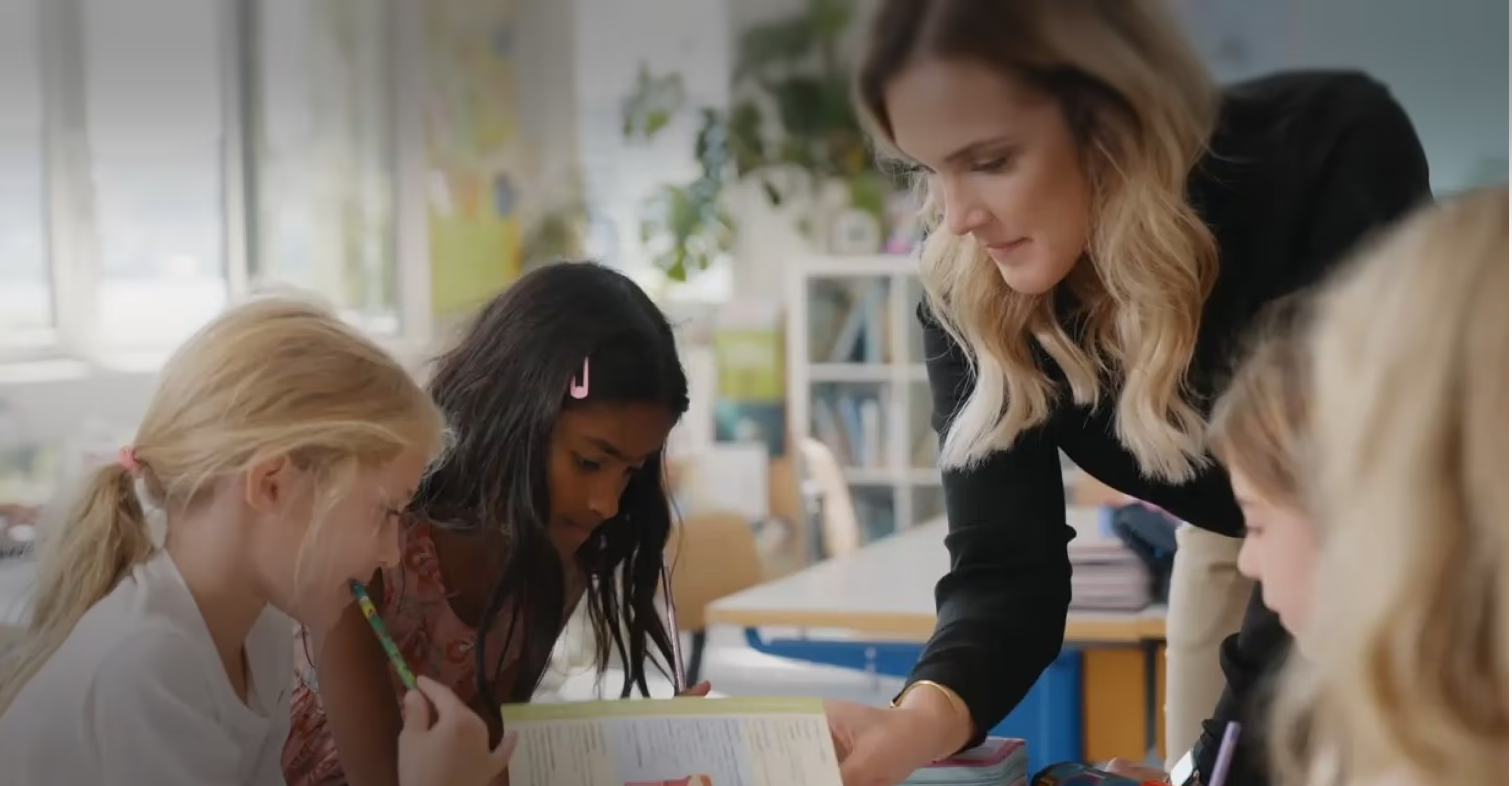
A warm welcome from our Primary School Principals
Peter Gilbert and Ramona Camenzind guide you into the world of our primary school, shaped by a philosophy that unites strong local values with a global outlook. At the heart of their approach is each individual child, encouraged to explore with curiosity and to grow in an environment that nurtures personal strengths and genuine confidence. Through diverse methods, varied learning settings and creative impulses, they create a classroom experience that goes far beyond teaching facts. It sparks inspiration, joy and a lasting love of learning. This foundation of knowledge, skills and learning techniques empowers every child to unfold their full potential.
Peter Gilbert & Ramona Camenzind
Primary School Principal (Horgen) | Primary School Principal (Küsnacht)
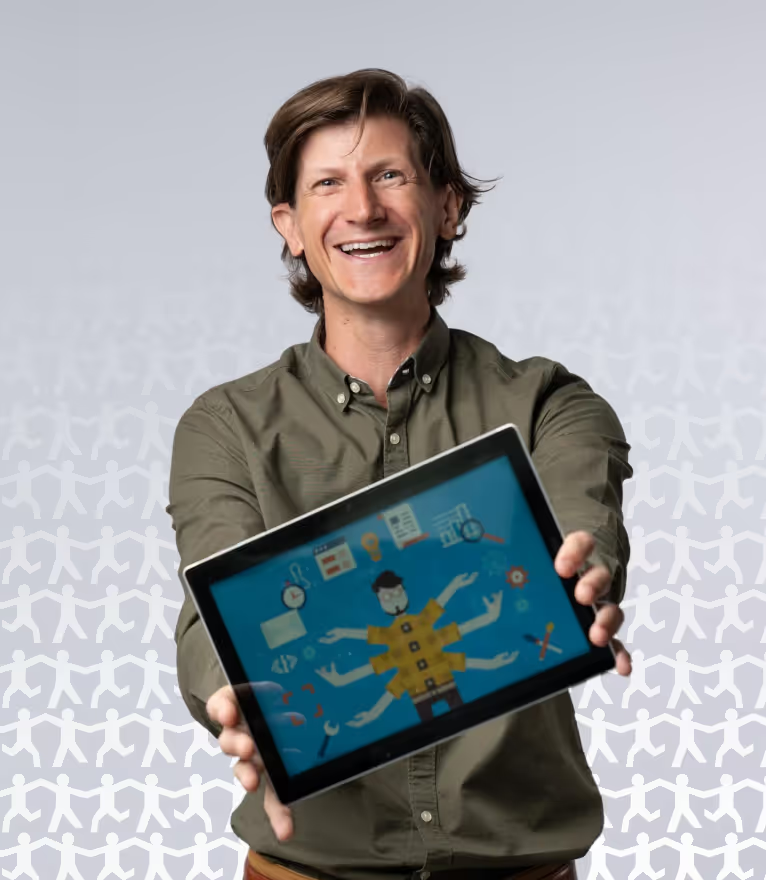

Our vision
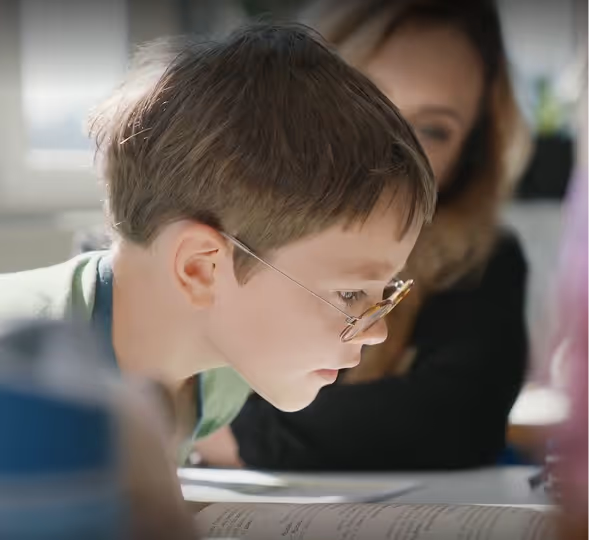
.svg)
Our holistic, challenging curriculum enables education at the highest level.

.svg)
Creativity, fun and movement are just as important as performance and attainment.
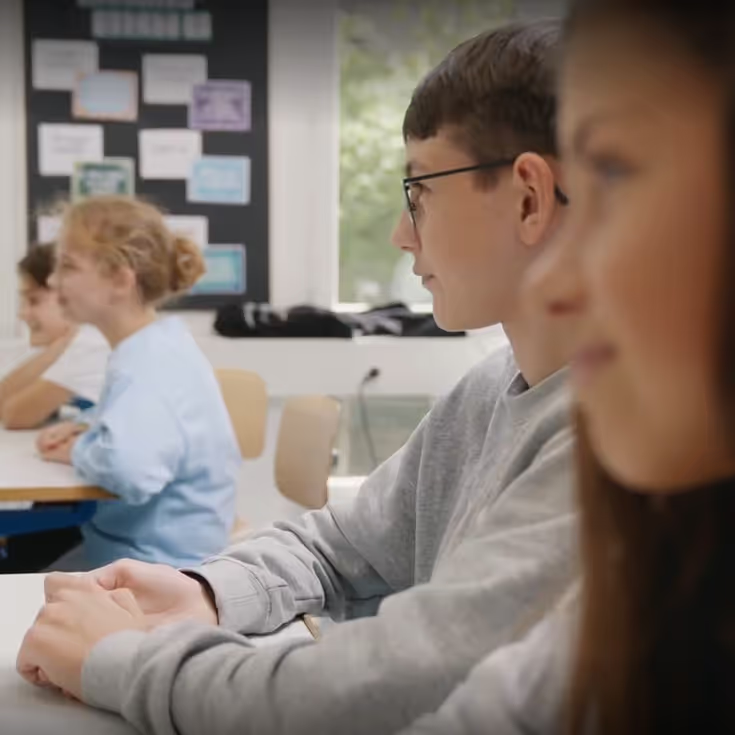
.svg)
We foster personal responsibility and social skills such as mutual respect and appropriately dealing with conflicts.
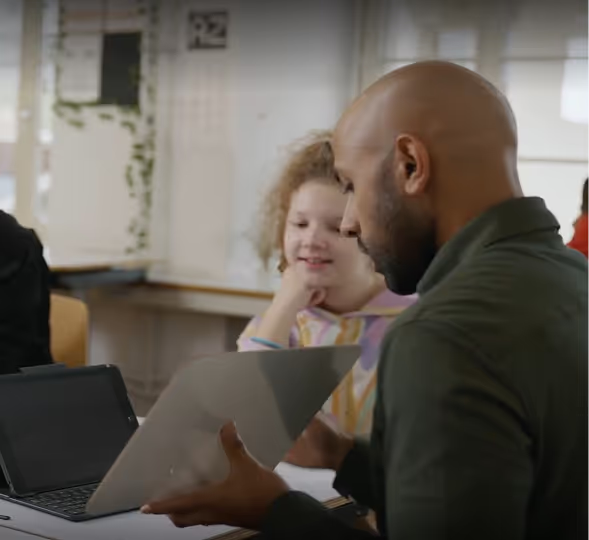
.svg)
We get to know our students and give them what they need for optimal development.
.avif)
Acquiring Knowledge and Developing Methodological Competencies
Our native German and English-speaking class teachers deliver varied and challenging lessons, supplemented by physical and creative classes led by specialised subject teachers.
Our goal is to build confidence, knowledge and methodological competencies and learning techniques to let your child live up to their potential and be prepared for their future after primary school.
Admission to our Primary School - Find out about our Waiting Lists
Your child can enrol at our primary school at any time during the academic year providing space within the cohort is available. As many of our classes have waiting lists, we recommend enquiring about available spaces as early as possible.
If your child's 6th birthday is before 31st July, they will enter Grade 1. If your child's 7th birthday is before 31st July, they will enter Grade 2, etc.
.avif)
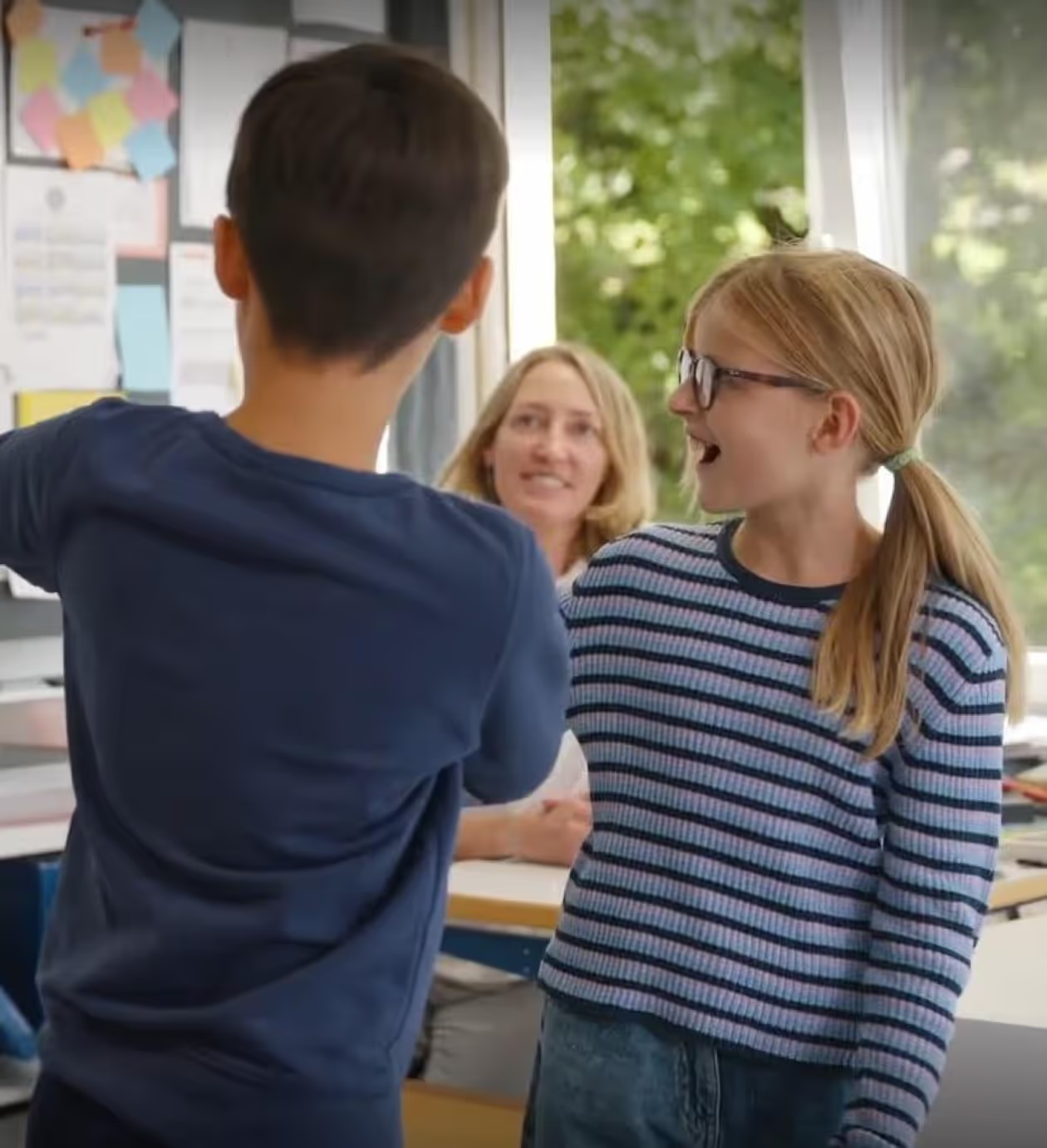
A Day in our Primary School
The school opens its doors at 8.30. Classes begin at 8.45 in Horgen and 9.00 in Küsnacht and the day ends at 15.45 in Horgen and at 15.30 in Küsnacht, except on Wednesday, where the school day ends at 12.00.
Classes consist of up to 18 students. In a weekly rhythm, our English-speaking teachers and German-speaking teachers take turns teaching each class according to our immersive bilingual model.
Additionally, all specialist subjects are taught in English and German to equally balance both languages.
At the end of each day, the students receive homework assignments. In Grade 1, homework is expected to engage students for approximately 10 minutes. In Grade 2, this increases to 20 minutes, with an additional ten minutes being added per grade level.
Special Days that make Learning at Lakeside School Memorable
We playfully discover the world on regular excursions and forest afternoons. In Grades 5 and 6, students take part in a one-week class camp that focuses on specific learning goals and aims to foster a healthy class community.
In Küsnacht, primary school children up to Grade 4 participate in swimming lessons in the nearby indoor pool. In Horgen, we use our own gym hall for physical education classes. Events for the entire school are hosted several times throughout the year. Examples include Sports Day, Advent Singing, Welcome Apéro, Easter Breakfast or the Children's Party, as well as Project Weeks.
.avif)
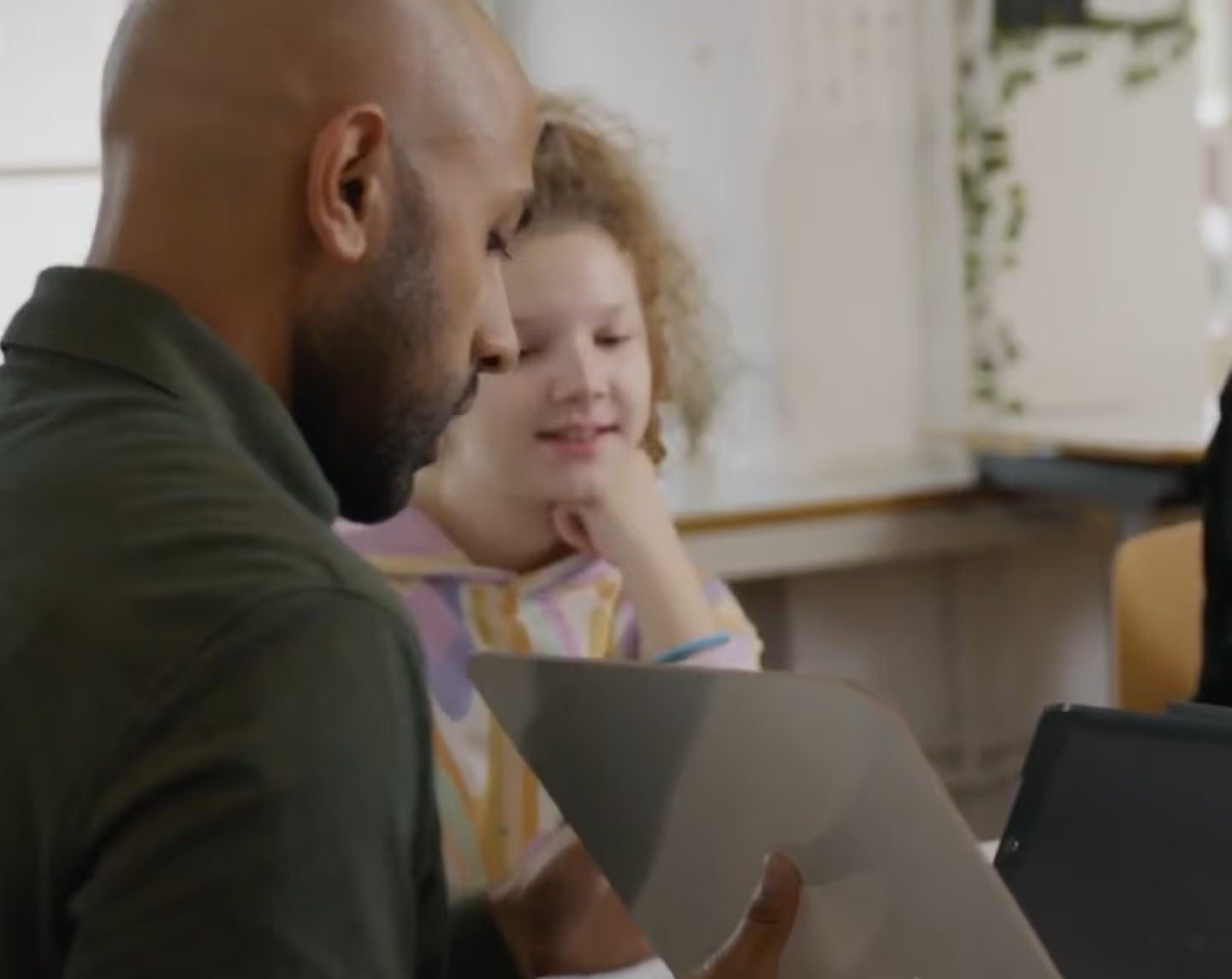

.avif)
Our Ongoing Assessment of Student Learning
Ongoing assessments throughout the academic year provide the basis for planning individual support and help to tailor lessons to the children's needs.
Families receive two reports per academic year and are invited to an annual parent conference. The focus is not solely on academic performance but also on work ethic, learning abilities and social behaviour.
Specialist Subject Teachers
The following subjects are taught in both languages by specialised subject teachers:
Physical Education
Crafts, Design, Technology (CDT)
Music
Drama
Coding
French (Grade 5 & 6)
On-demand and availability:
German as an Additional Language (DaZ)
English as an Additional Language (EAL)
Learning Support

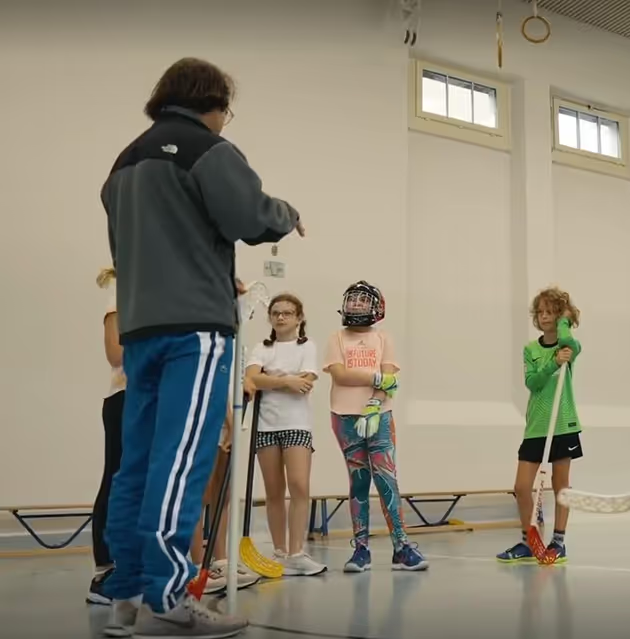
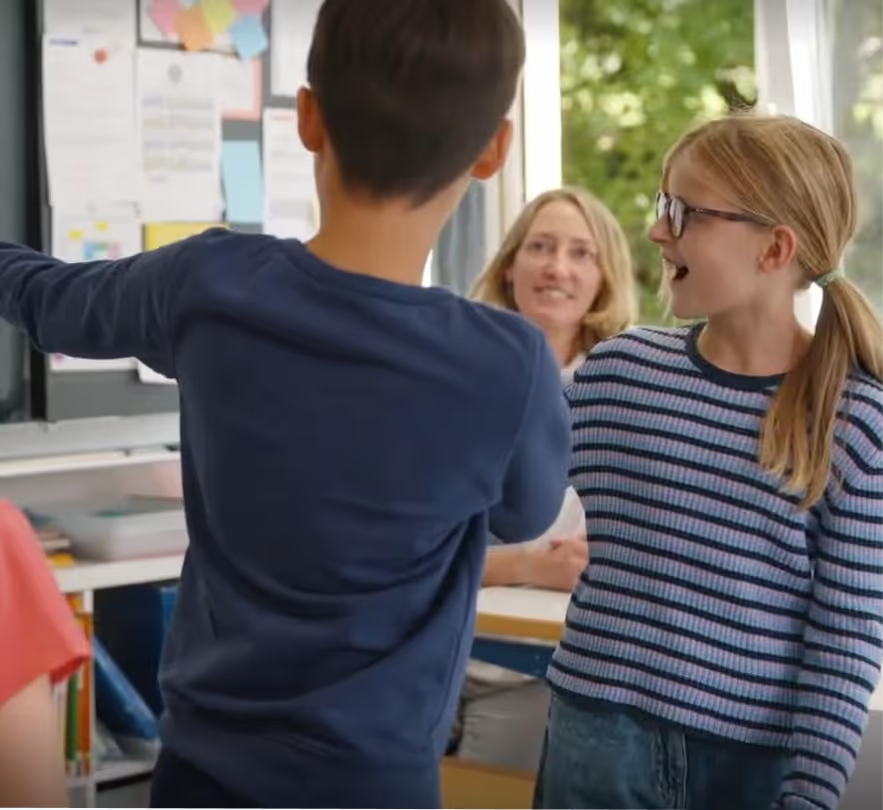
.avif)


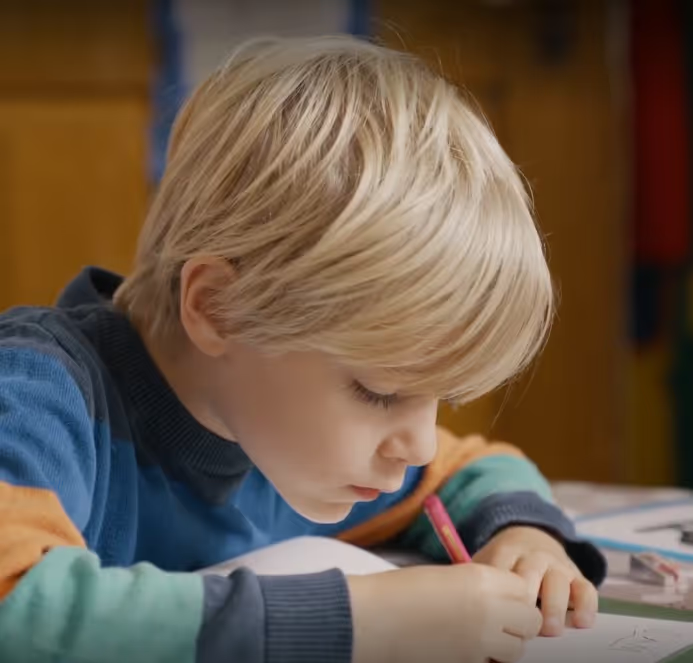
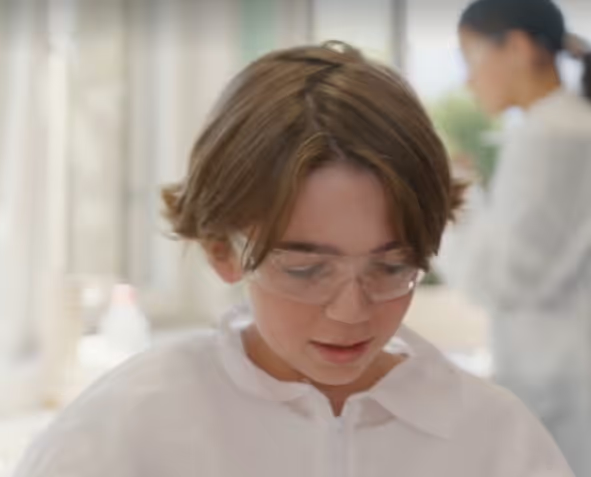
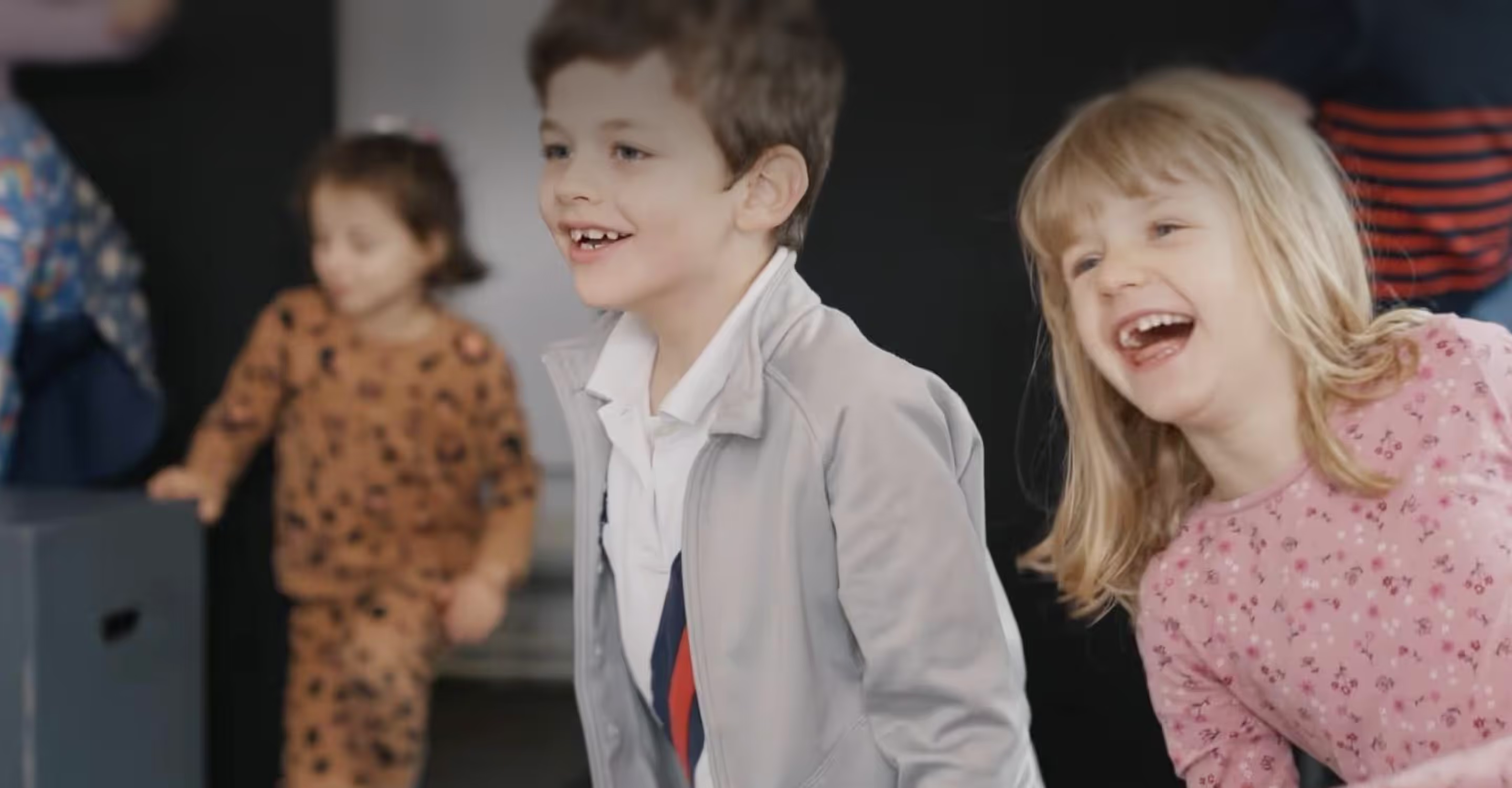


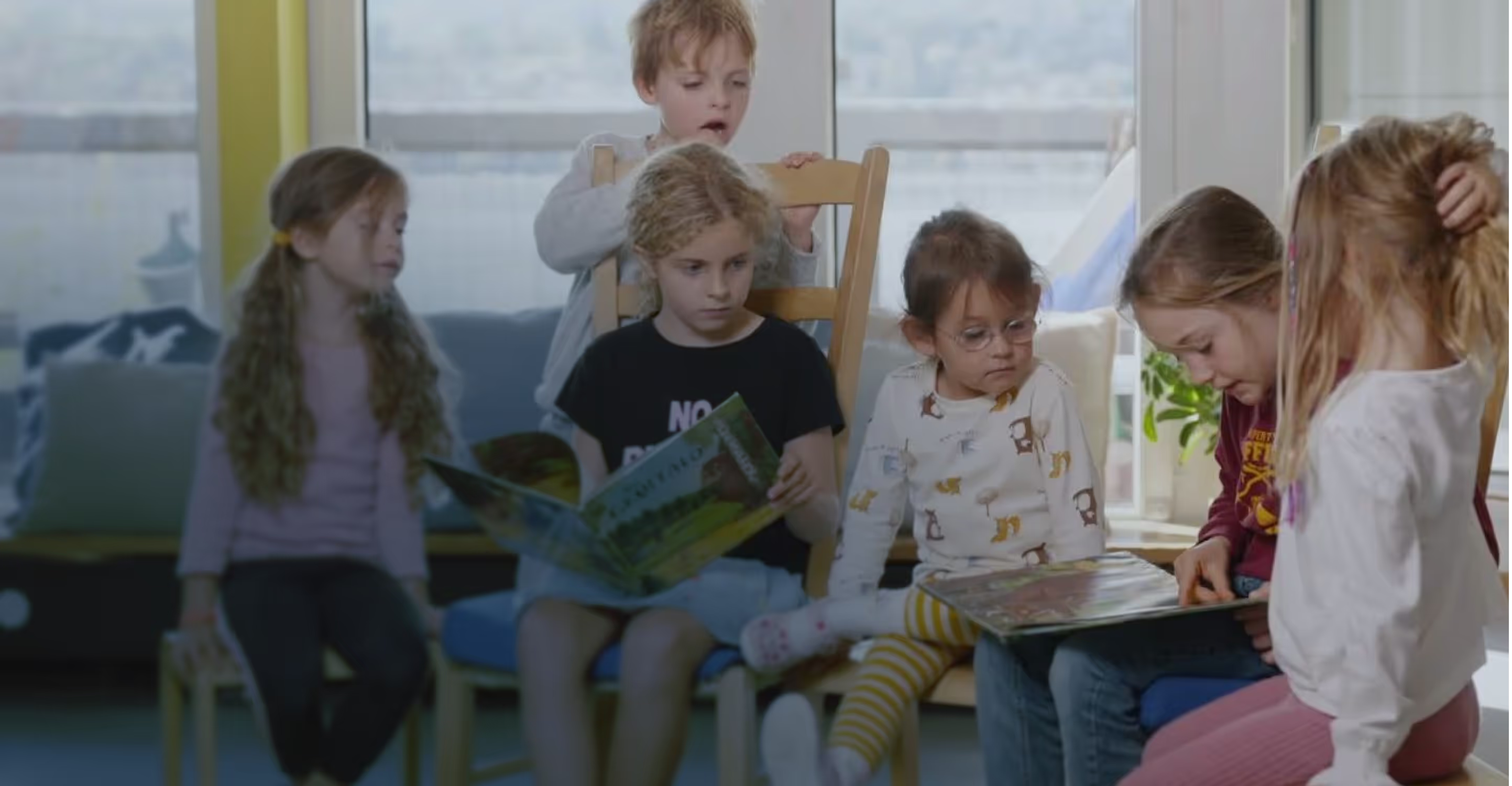
Before and After School Care for our Primary School Students
.avif)
Outside of Primary School hours, you can book various before and after school care options. You can also leave your child in our care during lunch on half-days. Our lunches offer a healthy, balanced meal with local, fresh, and organic ingredients.
Our carefully selected external partners offer various after school clubs at our campus, ranging from sports such as Kung Fu and gymnastics to coding club and acting classes.
In addition, we are happy to care for your child during four weeks of the school holidays!
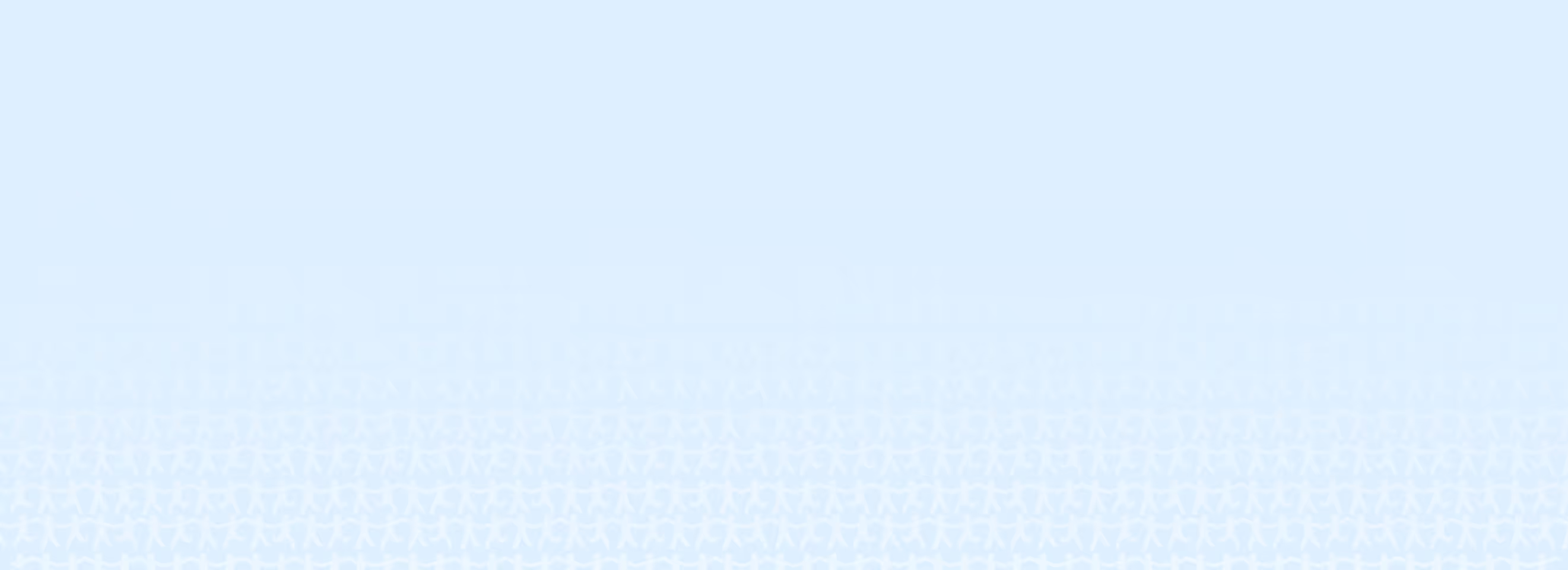
We are here for you

Register your child online for primary school or contact us to enquire about our waiting lists. We are happy to answer any questions.
Frequently Asked Questions & Answers
What is bilingual primary school?

In a bilingual primary school, classes are held in two languages. At Lakeside School, children spend one English week with their native English-speaking class teacher, followed by a German week with their native German-speaking class teacher. All subjects, including Mathematics and Environmental and Social Studies, are taught in this week’s language of instruction. Our students experience what it is like to be at school in an Anglo-Saxon country during their English week, while the German week mirrors an experience similar to a local school in a German-speaking country. Our specialist subject teachers instruct in their native language of either English or German.
How do bilingual classes work?

Our students are immersed in both languages, with one native English and one native German-speaking teacher sharing the responsibility for each class.
Is an enrolment possible at any time?

Yes. When your child enters our Primary School, we take the past educational history into account to conduct the appropriate grade-level placement.
What are the advantages of bilingual education in primary school?

Universities like ETH and the University of Zurich teach the majority of their postgraduate courses in English. Children who are enrolled in a bilingual programme from a young age develop native-level language proficiency and significantly higher cultural competencies than their monolingual peers. Even if a child transitions to a monolingual secondary school after Grade 6, the developed linguistic proficiency typically stays with them for life. Additionally, bilingualism positively impacts the development of a child’s brain and fosters skills such as communication, adaptability and understanding different perspectives.
Does my child’s German suffer at a bilingual school?

A German-dominant child reaches at least the same level in German as they would in a monolingual school. For children with other language dominances, German language acquisition is slower than if they were taught in a purely German-monolingual school. In the bilingual setting, however, they benefit from also reaching a native-speaker level in English in the areas of reading and writing.
What is your success rate for higher education paths?

On average, about 60% of our students enter a gymnasium after the 6th grade, e.g. bilingual Freies Gymnasium Zürich or monolingual public gymnasium. By comparison, this figure averages just under 20% in public schools.
Additional Questions? Contact Us.






























.svg)






